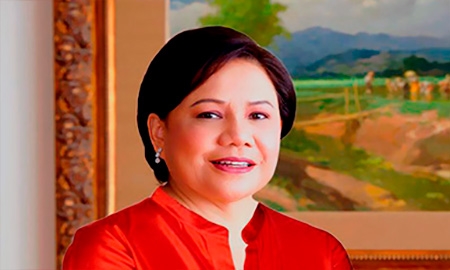In June this year, the Philippine senate passed a bill to liberalize the country’s banking sector, finally opening it up to more foreign financial institutions.
The new law amends a 20-year old foreign banking act, permitting foreign ownership of domestic banks to rise to 100 percent from 60 percent, and comes ahead of the goal for economic integration of the Association of Southeast Asian Nations bloc of countries in 2015.
“There are many small banks in the Philippines and only a few big banks— about five,” says Senator Cynthia Villar. “These five big banks are not enough to bring the Philippine economy forward. This is the reason why we are allowing the entry of foreign banks through legislation, with the passage of the liberalization of the entry of foreign banks in the Philippines.”
If 100% foreign ownership wasn’t already good enough news for foreign investors looking at the Philippines finance sector, a secondary provision of the new law also allows for foreign banks to own real estate property.
As Senator Villar explains, “Foreign ownership of land is not allowed under the Philippine Constitution. But under this law, foreign banks can take possession of real estate properties forfeited from real estate mortgages for five years, wherein they have to transfer the properties to Filipino nationals. This will enable banks to engage in real estate mortgage, which is very popular in the Philippines.”
With this, it is expected that greater foreign participation in the banking, financial and now real estate sectors will augment the financial resources to which the Philippine economy may have access, and thus, take advantage of economic integration of the ASEAN region next year.
While some bankers are fearful that Malaysian, Singaporean and Indonesian banks could crowd the market in the Philippines after ASEAN integration, Senator Villar says there is no need to worry about the big banks, but more so the fate of the country’s Micro, Small and Medium Enterprises (MSMEs).
“Our five big banks in the Philippines can compete even after the ASEAN financial integration in 2015,” she affirms. “What we have to worry about is micro, small and medium enterprises (MSMEs) and how they can compete with the challenges and take advantage of the opportunities that AEC 2015 will bring about. The Philippine government should be prepared to help MSMEs.”
Indeed, having herself been a very successful entrepreneur and businesswoman (she worked her way up to become Vice President of the Household Finance Corporation and later managed the Capitol Development Bank before becoming a politician), the Senator has a particular personal interest in entrepreneurship. This is why Senator Villar has also recently been pushing a separate bill for the inclusion of entrepreneurship as a subject in high schools.
The micro, small and medium enterprises sector currently represents 92 percent of all businesses and 66 percent of all jobs in the country and Senator Villar believes that the continued development of this key sector should be pursued and introduced to all Filipinos.
According to Senator Villar, many business people, political leaders, economists and educators believe that fostering a robust entrepreneurial culture will maximize individual and collective economic and social success on a local, national and global scale.
Through the Villar Foundation, which Mrs. Villar set up with her husband and fellow politician Manny Villar, the Senator has taken her interests to an even more grassroots level of the economy.
Since its inception, Villar Foundation has initiated, implemented, and supported various projects aimed at improving the quality of life in Filipino communities. Over the years, its advocacies and beneficiaries have expanded and diversified in order to reach more people and sectors of the society. These include the poor and underprivileged such as overseas Filipino workers and their families.
“We really have to help overseas Filipino workers (OFWs) because they are half of the market in the Philippines,” explains Senator Villar. “In our foundation, we do repatriation, medical and livelihood assistance, and training. Our foundation, Villar SIPAG, organizes the yearly OFW and Family Summit to encourage and teach OFWs and their families about entrepreneurship and how to start their own small businesses. We are trying to help them to set up a business with their savings, so they have something to go back to after working hard abroad.”
Senator Villar, the chair of the Senate Committee on Agriculture and Food, believes that there are lots of opportunities for OFWs to undertake agri-related projects. These include growing crops and farm animals, food processing, trading and agritourism. Indeed the OFW Summit organized by the Villar Foundation last year was focused on agribusiness projects that returning overseas workers can engage in.
“We are an agricultural country and the majority of our people are in agriculture-related jobs and businesses. I believe that technological innovation and entrepreneurial mindset can propel the agriculture sector to greater heights," she says.
To realize this dream, the Philippines agriculture sector is in need of greater investment. While the government is already putting greater focus on education, such as agriculture courses and financial literacy, as well as equipping Filipinos with the mind-set, skills, and support structure to treat their farms as profitable enterprises, the Philippines is also in need of foreign investment and knowledge transfer in agricultural innovation and technology.
“Being an agricultural country, we need seeds, irrigation and fertilizers. The government should also provide the direction to the private sector especially the foundations of different companies doing corporate social responsibility projects and other NGOs,” she concludes. “We can create a more productive agricultural sector in the process.”

0 COMMENTS